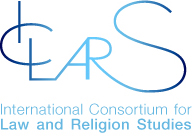Conclusions of the report of the UN Special Rapporteur on freedom of religion or belief, Prof. Dr. Heiner Bielefeldt

Due to the importance of the issue of State recognition of religious and belief communities, we publish the conclusion of the report prepared by the UN Special Rapporteur on freedom of religion and belief, Heiner Bielefeldt . In this report, the Special Rapporteur on freedom of religion or belief addresses the theme of freedom of religion or belief and recognition issues. He thinks over the concept of “recognition” concentrating on the extent of the requirements for religious groups to obtain the status of legal personality, which they may need for the exercise of important communitarian aspects of their freedom of religion or belief.
67. The concept of State recognition has many repercussions in the field of freedom of religion or belief. It is important to clearly distinguish different meanings within that concept in order avoid possible misunderstandings which could negatively affect the implementation of freedom of religion or belief, or even undermine its status as a universal human right.
68. The Special Rapporteur has proposed differentiation between three relevant meanings of recognition pertinent to freedom of religion or belief: (a) “recognition” in the sense of due respect for the status of all human beings as right holders by virtue of their inherent dignity; (b) “recognition” in terms of States providing for the possibility of obtaining the status of legal personality, which religious or belief groups typically need for the exercise of important communitarian aspects of their freedom of religion or belief; and (c) “recognition” in the sense of States according a specific privileged status position to some religious or belief communities.
69. The Special Rapporteur would like to emphasize that States have obligations related to all of the above-mentioned meanings of recognition.
70. In keeping with the universalistic understanding of human rights, States must ensure that all individuals can enjoy their freedom of thought, conscience, religion or belief on the basis of respect for their self-understanding in this entire area. Respect for freedom of religion or belief as a human right does not depend on administrative registration procedures, as freedom of religion or belief has the status of a human right, prior to and independent from any acts of State approval.
71. Furthermore, States should offer appropriate options for religious or belief communities to achieve the status of legal personality on a domestic level, a status needed for undertaking important community functions relevant for the full exercise of freedom of religion or belief. Registration procedures for obtaining legal personality status should be quick, transparent, fair, inclusive and non-discriminatory.
72. Moreover, if States decide to provide for specific status positions connected with particular financial and other privileges, they should make sure that such a specific status does not amount to de jure or de facto discrimination against members of other religions or beliefs. With regard to the concept of an official “State religion”, the Special Rapporteur would argue that it seems difficult, if not impossible, to conceive of an application of this concept that in practice does not have adverse effects on religious minorities, thus discriminating against their members.
73. From the above considerations, the Special Rapporteur would like to make the following recommendations:
(a) States should systematically ground any activities in the area of religion or belief in a clear understanding of the due respect for every person’s freedom of religion or belief as a universal human right based on the inherent dignity of all members of the human family;
(b) States should refrain from exercising pressure on religious or belief groups whose members prefer not to be registered as legal entities under domestic law;
(c) States should instruct members of law enforcement and other State agencies that religious activities of non-registered religious or belief communities are not illegal, as the status of freedom of religion or belief prevails over any acts of State registration;
(d) States should offer appropriate options and procedures for religious or belief communities to achieve a status of legal personality if they so wish. Administrative procedures for obtaining such a status should be enacted in a spirit of servicing the full enjoyment of freedom of religion or belief for everyone and should thus be quick, transparent, fair, inclusive and non-discriminatory;
(e) All registration decisions must be based on clearly defined formal elements of law and in conformity with international law. Registration should neither depend on extensive formal requirements in terms of the number of members and the time a particular community has existed, nor should it depend on the review of the substantive content of the belief, the structure of the community and methods of appointment of the clergy;
(f) States should ensure that no religious community has, de jure or de facto, the possibility to exercise a “veto” or otherwise influence the decision to register or not to register another religious or belief group;
(g) States have to provide effective legal remedies for individuals or groups complaining about the denial or arbitrary delay of registration as a legal personality;
(h) States should refrain from arbitrarily stripping certain religious or belief communities of legal status positions they had possessed before as an instrument of exercising control or marginalizing groups deemed not to fit into the cultural make-up of the country;
(i) When offering a privileged legal status position for certain religious or belief communities or other groups, such a specific status should be accorded in strict conformity with the principle of non-discrimination and should fully respect the right to freedom of religion or belief of all human beings;
(j) Any specific status positions given by the State to certain religious or belief communities or other groups should never be instrumentalized for purposes of national identity politics, as this may have detrimental effects on the situation of individuals from minority communities.
From the ICLARS Newsletter of April 2012, Newsletter editor: Vincenzo Pacillo.